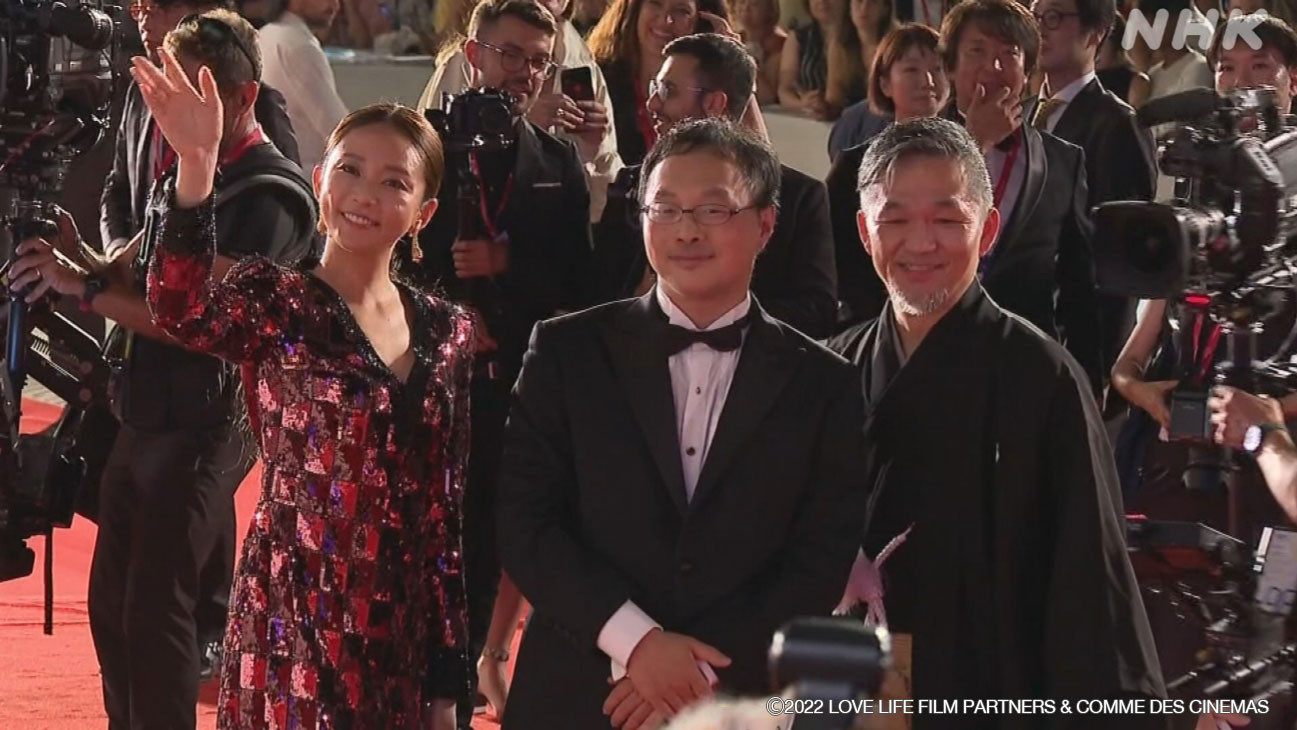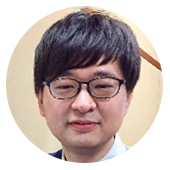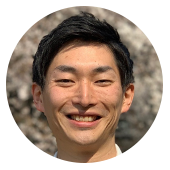A film that treats the deaf as ordinary people
The film begins with the protagonist living happily with her family. But a tragedy leads her to become reunited with her ex-husband. The plot takes unexpected turns as the heroine reflects on her life.
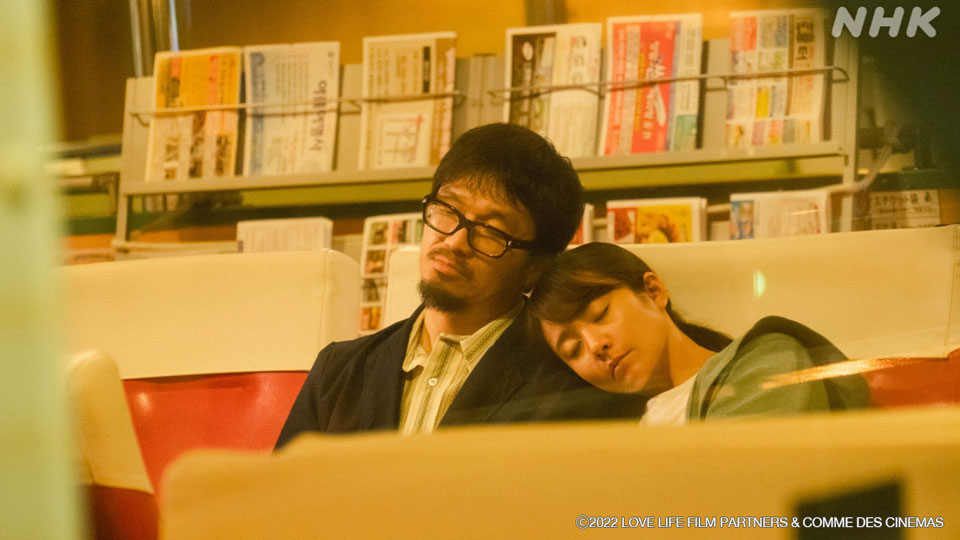
- What do you think is the highlight of "Love Life"?
Sunada: The love triangle of Taeko, Jiro and Park. The way the dynamics play out is intriguing. My character is Park, who is half-Korean, half-Japanese and deaf. The ending contains some surprises!
What makes this film different from many past movies is it treats the hearing-impaired like everyone else. Park is just one of the characters, leading an ordinary life. I want this film to change audiences' perspective of movies. I hope they see the deaf character simply as he is portrayed. Many of us have come to expect movies to treat deaf characters from a particularly sympathetic viewpoint, but that's not the case with this film.
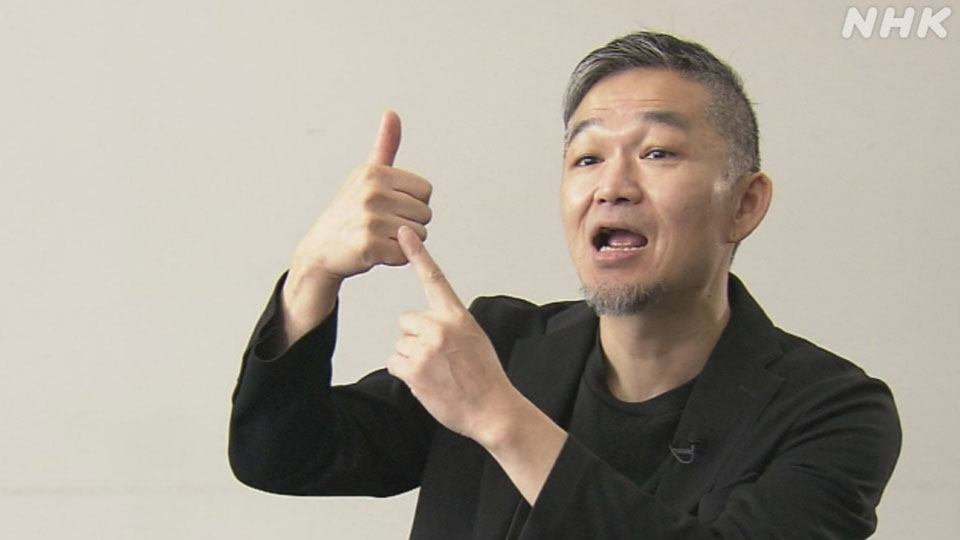
- Deaf characters have been featured in a number of movies dealing with themes of disabilities or social welfare, but this is a love story in which a deaf person just happens to appear. What did you think about that?
Sunada: If "Love Life" had tried to arouse sympathy or pity, I wouldn't have taken the role. But when I read the script, I didn't see any hint of this. People who can hear and those who can't are depicted in the same, normal way. No treatment is different because of a disability. Everyday things are described just as they are. Of course, the director can hear, and he was not especially familiar with deaf culture or the way deaf people live. The two of us talked a lot, and he was able to bring more awareness to the script.
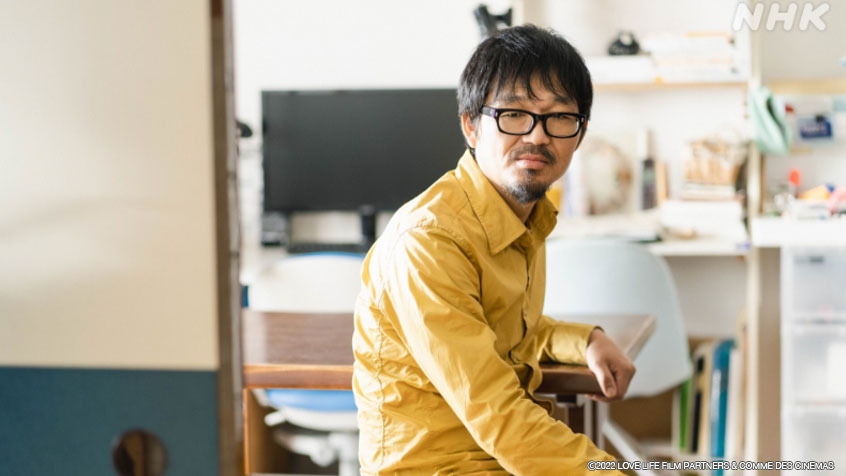
- Were there any scenes in which the director used your insights as a deaf person?
Sunada: Yes. For example, when people talk in their sleep. The director asked me if deaf people do the same. I said we also talk in our sleep -- in sign language. Also, as you know, people who can hear tend to speak louder when they are far apart. What about the deaf? Of course, we do the same. I told him we use smaller sign gestures when we talk to someone close by, and larger gestures for someone far away.
The most important thing is eye contact. Normally, people with hearing difficulties who speak in sign language have to face each other and make eye contact. He asked what we do when we're sitting side by side. I told him a mirror can be helpful. We often use them in such situations. He used these tips in the story.
- You could say one of the film's motifs is about "looking each other in the eye when we talk." There is a contrast between the couple who don't do this, and the couple who has to -- because they use sign language.
Sunada: Yes, it's a matter of course for deaf people to make eye contact when they talk. It's very important. When we go shopping and store staff don't understand us, we need to communicate in writing. But if they don't make eye contact, it's very disappointing. Avoiding eye contact is one aspect of hearing culture. Many people try not to look each other in the eye. At the same time, there are many deaf-hearing married couples. They feel eye contact is crucial to their everyday lives. I'd be happy if people learned about aspects of deaf culture like this.
- In your long career, you have striven to improve your acting in sign language. What made you pursue acting?
Sunada: I always liked performing on stage. My parents were also deaf and we talked in sign language all the time. My father is a Christian, and he used to deliver the Sunday service for deaf people. I thought he looked cool and smart when he stood at the pulpit, speaking sign language. I began to dream of performing in sign language around that time.
Also, when I was 15, I happened to see a video in which a person was speaking in a fascinating style of sign language. I was surprised to learn the person was also deaf. I realized deaf people can perform and thought maybe I could really become an actor. That was when I began pursuing this career. I studied various ways of expression. At school, I showed sign language to friends, and I became more confident when I made them laugh. After graduating from school, I moved to Tokyo and enrolled in a course to study sign language acting. And as I gathered experience, I started performing on stage.
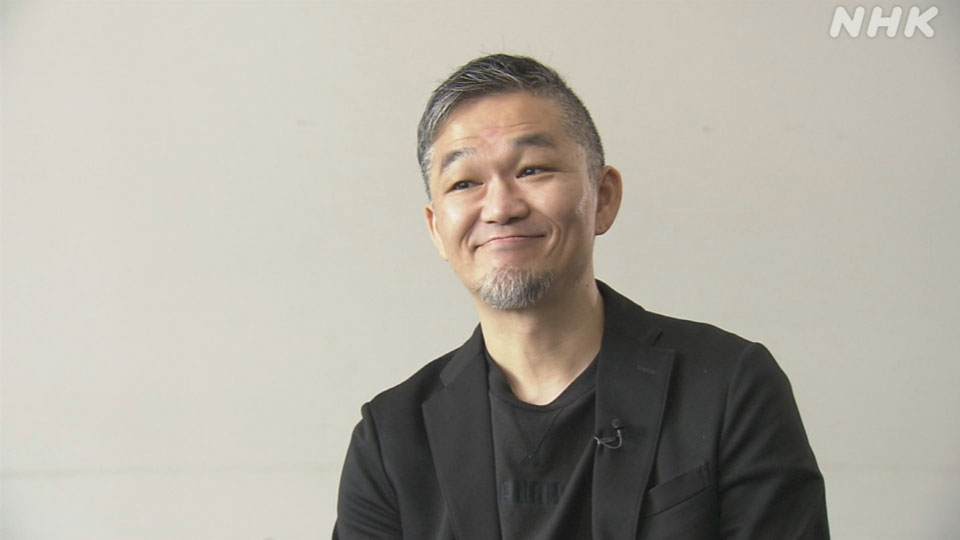
The top prize at Venice went to the US documentary "All the Beauty and the Bloodshed." But even though "Love Life" did not win, Sunada's performance and the movie received accolades. An Italian man in the audience said, "It is interesting to reflect on what true communication is, which is precisely what this film does. It gives us a pure view of communication, as words very often fail to convey everything there is to say, like a gaze that fails to connect."
A viewer from Germany said, "It really goes to your heart. It may seem like a melodrama, with all of its twists, but what it captures is very true to life."
- Even deaf actors have to rehearse their lines! My impression was your signs convey the character's feelings well and look attractive.
Sunada: Of course we rehearse. For example, people who can hear may enjoy listening to songs, but not everyone can sing an opera. Singers receive special training and only if their skills are recognized can they go on stage and perform. Sign language is the same. Just being able to sign is not enough. Actors have to engage the audience with their language. I have been practicing ways to appeal to an audience for more than 30 years, but I still consider myself a novice.
A deaf actor playing a deaf character
- In the past, it wasn't uncommon for hearing actors to play deaf roles. What's your view on this?
Sunada: That's a difficult question. For example, I sometimes play a character older than myself. But the important thing in this movie is that the character uses sign language as a means of communication. This can't be done by just anyone. I think it's crucial for a deaf actor to play such a role.
Hearing actors might achieve convincing expressions through training, but there is a limit. They have to understand deaf culture. Sign language is not just moving your hands. You have to gesture with your eyebrows, or use facial expressions the right way to make what you're saying grammatically correct. Without knowing all these things, you can't express yourself naturally in sign language. Not just anybody can do this. I do feel uncomfortable about the idea of a hearing person playing a deaf role.
As Sunada spoke, he used strong sign language to stress his conviction in having deaf actors play deaf roles.
Director Fukada, who is involved in a group promoting diversity in filmmaking, also addressed the issue. He says filmmakers are partly to blame for the scarcity of deaf actors playing deaf characters.
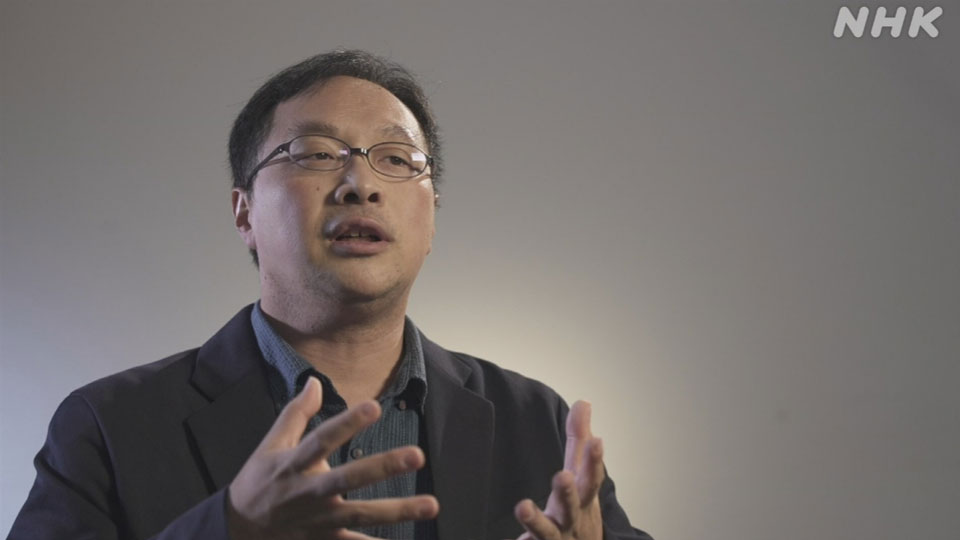
Fukada: If a deaf character is featured, the film tends to depict him or her as someone caught up in social problems, or tries to connect the story with issues of discrimination or welfare. I'm not saying this is wrong, but if deaf actors are always cast as such characters, their roles will remain limited. For instance, nobody will question whether a certain character can hear, but if the character happens to be deaf, people will ask why. They expect the story to have a reason for this. I think this is a little unfair.
If I had hired a hearing actor for the deaf character, the film would probably have been seen as a precedent for not choosing a deaf actor for a deaf role. In interviews, I would have had to convince people why a hearing actor could play a deaf character. I would have had to justify my decision; otherwise, it would be rude to the actor. I think this kind of justification is common in filmmaking. In many cases, this is why actors who have the specific attributes to play certain roles have not been hired.
Deaf actors have not been given many opportunities. The inequality is entrenched. The first thing we need to do is to eliminate this problem. The debate around acting or performing arts that a hearing person should be able to play a deaf role since "anybody can become an actor" should come much later. Only once deaf actors become a normal part of performing arts can we discuss these theories.
Sunada as a role model
- You upload posts teaching sign language to a video streaming site. How do you want to be viewed by younger deaf actors?
Sunada: I hope sign language will spread as a means of expression. It is extremely rare that deaf actors get casting auditions. The number of deaf actors is still low. For deaf actors to compete on an equal footing with their hearing counterparts, we have to develop more young deaf actors. I hope I can inspire and encourage many deaf actors to pursue their aspirations, dreams and interests. But I won't let any young rivals beat me!
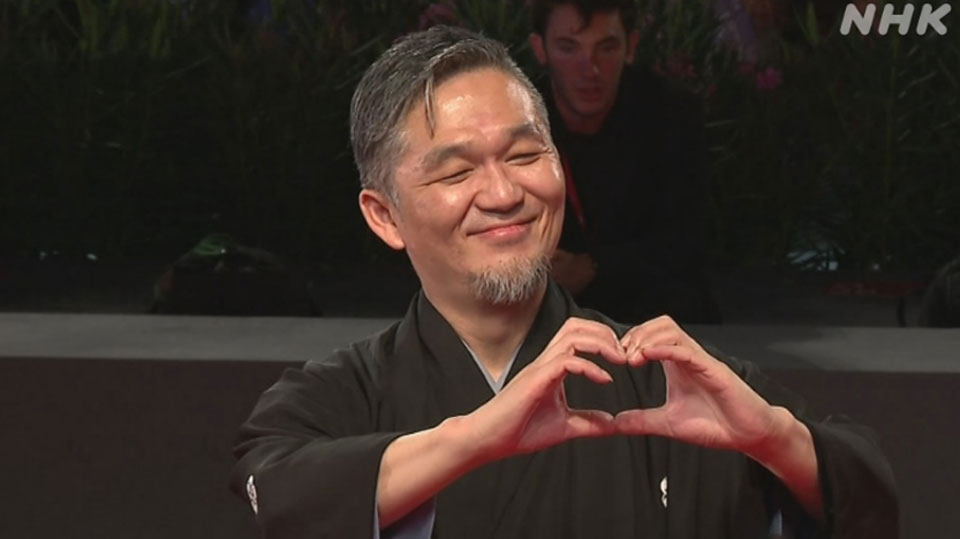
- This film might offer many people an opportunity to learn something about deaf people.
Sunada: Yes, I think it's great that those who have had no contact with sign language or the hearing-impaired may learn something about deaf people in this film. When I speak in sign language, people stare at me, not because I'm famous, but because I appear weird. Deaf people who use sign language, the visually impaired, people in wheelchairs -- they are no different from anybody else. I hope people will naturally see them as part of their lives instead of something strange.
